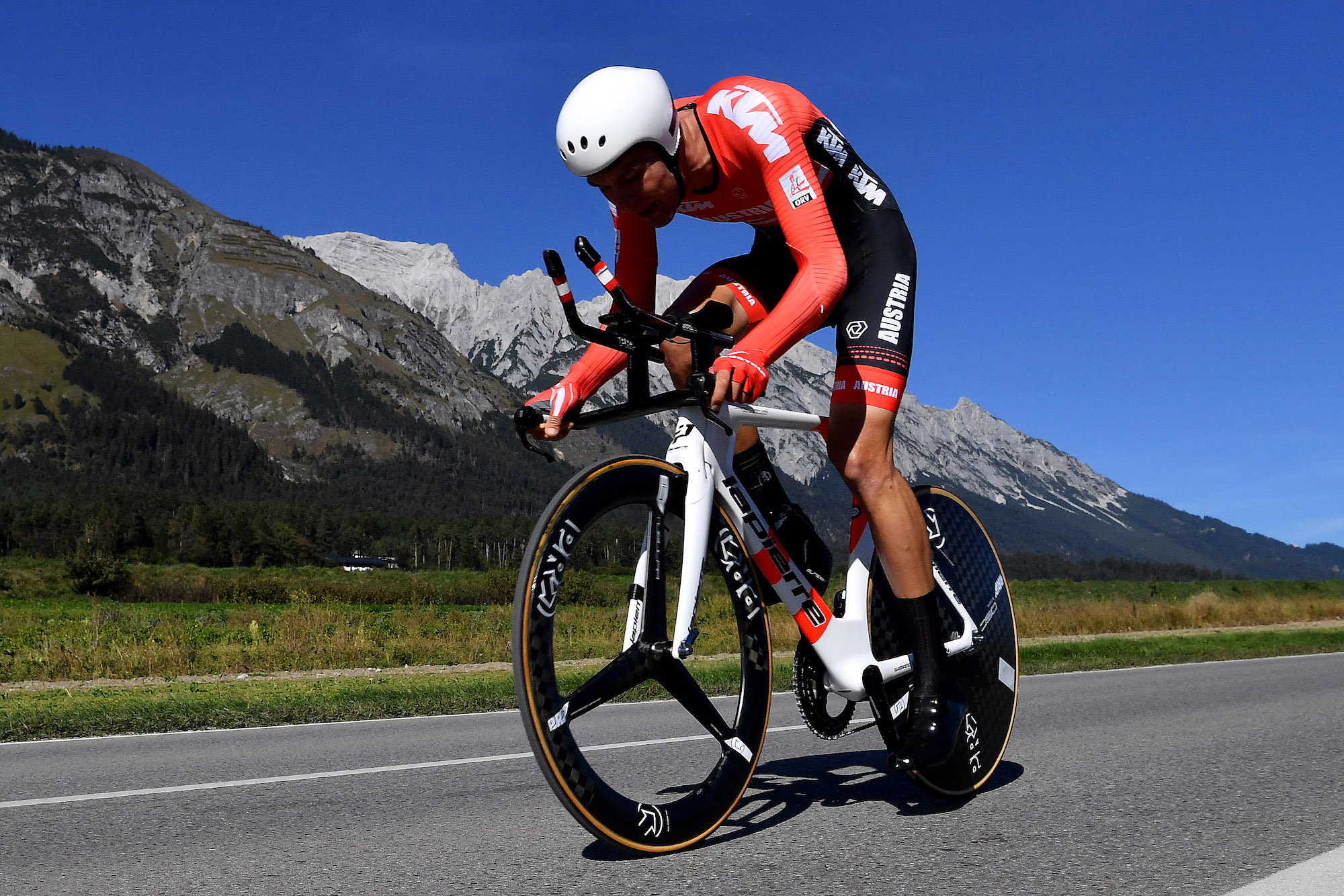MPCC urge UCI to improve testing to combat 'mafia'-esque blood doping
The cycling union has also urged the UCI to start investigating Aicar usage within the professional peloton

Georg Preidler at the 2018 UCI Road World Championships in Innsbruck, Austria (Photo by Justin Setterfield/Getty Images)
The Movement for Credible Cycling (MPCC) has written a letter to the UCI with a number of recommendations on how cycling's governing body can improve their fight against doping.
Following a general meeting where the Operation Aderlass doping scandal was discussed the union, which contains a number of WorldTour and Pro-Continental teams, has come up with a number of recommendations to combat blood doping in particular.
Additionally, the letter reveals that Groupama FDJ's manager Marc Madiot and Sunweb boss Iwan Spekenbrink recently met with Georg Preidler, who was implicated in the Aderlass doping scheme, who apparently helped them understand how the system worked without the knowledge of either team.
"In this very specific case, it involves the implementation of a mafia doping protocol in outside teams," the letter reads.
"They tell the riders that they will not be caught by the controls of the UCI. This is the case, since it was the police who discovered this doping and the two teams concerned had no suspicion about the rider."
>>> Total Direct Energie confirm they will decline invite to Giro d’Italia 2020
Apparently riders would extract blood during periods off the bike and save it for use on specific days of racing when they needed a boost in performance.
The latest race content, interviews, features, reviews and expert buying guides, direct to your inbox!
"The blood is extracted from the riders and stored at the beginning or during their holidays and at the beginning of periods when the riders have a break during the cycling season," the MPCC said.
"They select several stages in races and Grand Tours. In the morning, they inject blood, and after the arrival, they extract that blood again. Blood tests (and urine tests) shortly before the start or immediately after the stage, must be allowed to see any manipulation."
In the letter, the MPCC makes a number of recommendations, most notably including extra tests for riders who have travelled to faraway locations, potentially for training camps, as well as searching for plastic in the blood, which can indicate blooding doping has occurred.
"Thus, additional tests are required in these periods, also when riders have traveled to distant destinations," the MPCC said. "It would be good to include in these tests the search for plastic in the blood, as an indicator, evidence of blood doping."
As well as blood doping, the MPCC suggest the UCI should investigate the prevalence of Aicar in the professional peloton, and whether riders are drinking it during races. Aicar, a muscle-enhancing and fat-burning drug, was believed to be back in the Tour de France this year, with doping labs subsequently placed on alert after tip-offs from prominent figures within the world of cycling.
The MPCC was set up in July 2007 by seven professional teams including Ag2r La Mondiale, Cofidis and Groupama-FDJ in order to campaign for clean cycling and adhere to a strict code of ethics.
Seven out of 19 WorldTour teams currently belong to the union, Ag2r La Mondiale, Dimension Data, Groupama-FDJ, EF Education First, Cofidis, Sunweb and Lotto-Soudal, as well as 16 Pro-Continental outfits.
UAE Team Emirates withdrew from the MPCC in March 2015, followed by Jumbo-Visma in July the same year.
Astana were then excluded from belonging to the organisation in September 2015 after they allowed Lars Boom to start that year's Tour de France despite having a low cortisol level, with Mitchelton-Scott and Katusha both withdrawing in February 2016.
Jonny was Cycling Weekly's Weekend Editor until 2022.
I like writing offbeat features and eating too much bread when working out on the road at bike races.
Before joining Cycling Weekly I worked at The Tab and I've also written for Vice, Time Out, and worked freelance for The Telegraph (I know, but I needed the money at the time so let me live).
I also worked for ITV Cycling between 2011-2018 on their Tour de France and Vuelta a España coverage. Sometimes I'd be helping the producers make the programme and other times I'd be getting the lunches. Just in case you were wondering - Phil Liggett and Paul Sherwen had the same ham sandwich every day, it was great.